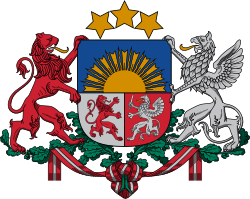New ballot papers
Starting with the 2025 local elections, new ballot papers will be in force in Latvia. The main changes will affect those voters who wish to highlight one of the candidates in particular, or express a negative attitude towards one of the candidates on the selected list. Until now, it was customary for candidates whom a particular voter particularly supports to be marked with a “+” sign, and undesirable ones to be simply crossed out. According to this new ballot paper model, next to each candidate's name there will be two differently colored fields, and the voter will be able to shade one – the green field – if they particularly support a candidate, or shade the other – the red field – if they find the particular candidate unacceptable. [8]
Aftermath
After the polling stations closed, problems with the ballot scanning system provided by the State Digital Development Agency (SDAA) led to a manual count, delaying the election results. Kristīne Saulīte, head of the Central Election Commission (CVK), said an investigation would be needed into the incident. On 9 June, Minister of Smart Administration and Regional Development Inga Bērziņa suspended the director of the State Digital Development Agency, Jorens Liopa, responsible for the electoral system, from his duties. On June 11, taking responsibility for problems with information technology solutions supporting the election process, Minister I. Bērziņa herself resigned from her position. [16] On same day, the head of the Central Election Commission (CVK), Kristīne Saulīte, has nevertheless decided to resign from her position, in following day. [17]
This page is based on this
Wikipedia article Text is available under the
CC BY-SA 4.0 license; additional terms may apply.
Images, videos and audio are available under their respective licenses.
